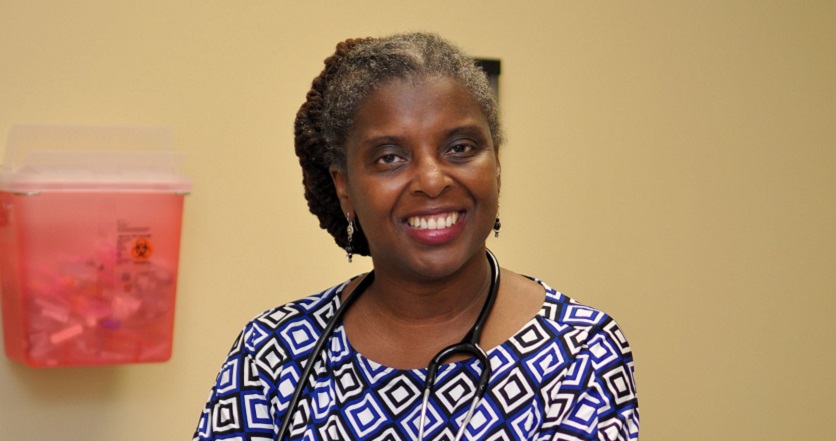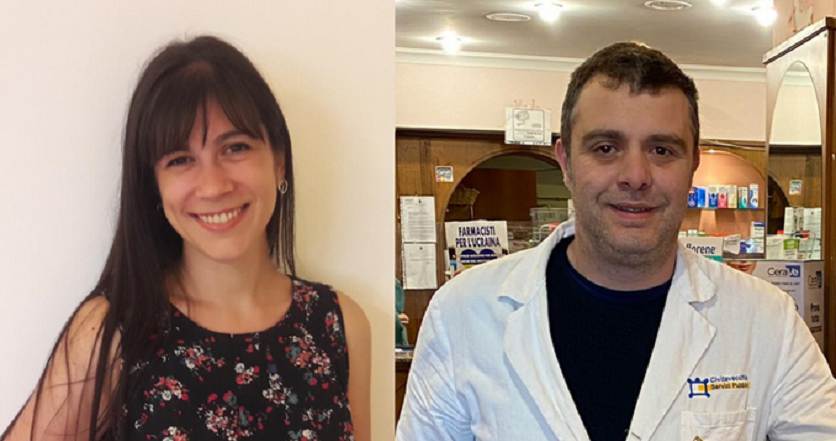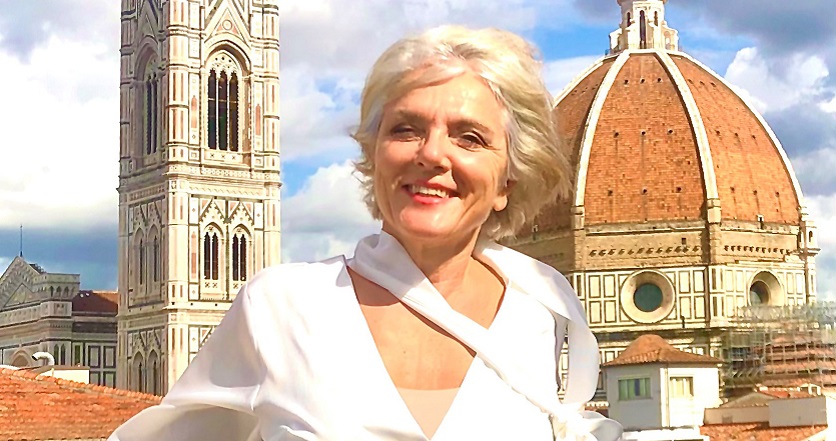Becoming Myself, Becoming a Midwife
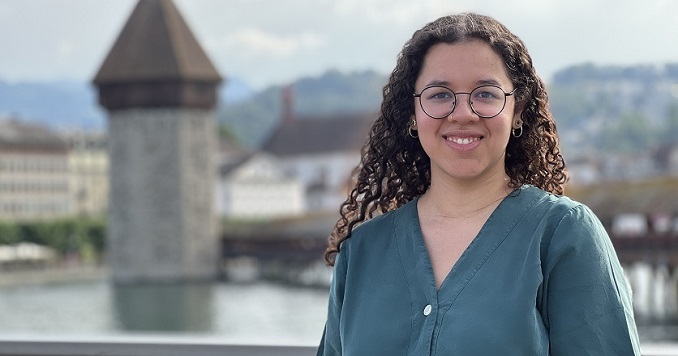
In the hospital of a small Swiss town midwife Jira Andriamisalalao gets excited every time a baby is born on the maternity ward where she works. Through her natural cheerfulness she is able to bring comfort to the anxious new mothers. Here she talks about the challenges she faced and the part her Buddhist practice played in finding both herself and midwifery.
Could you tell us a little about your background and your life growing up?
My father is from Madagascar, and my mother was born in Switzerland. As a teenager, I always struggled with my self-esteem because of my mixed background. I realized that I didn’t fit the typical Swiss beauty standard as I don’t look like the typical Swiss person. I was always comparing myself to the popular girls—in terms of hair, skin color, facial features—and I would get depressed, thinking that I was not beautiful. I couldn’t love myself. That was the hardest thing for me.
How did you transform these feelings about yourself through practicing Buddhism?
I found a place where I could feel at ease—the Soka Gakkai community in Switzerland. My parents, who are Soka Gakkai members, often took me to meetings. The atmosphere was completely different from school. People there sincerely praised each other. Especially the young women who helped run the meetings—they sparkled!
Over time, with years of chanting Nam-myoho-renge-kyo, I started to genuinely accept myself.
Seeing people wholeheartedly support others and find joy in doing so, I felt as though I had caught a glimpse of true beauty. Eventually, I decided to join the Soka Gakkai, and the shy, insecure Jira gradually began to smile more and more.
Being part of a group of young women who supported meetings also had a profound impact on me. I loved supporting others and felt that my own life state mattered more than my appearance. Over time, with years of chanting Nam-myoho-renge-kyo, I started to genuinely accept myself.
Your educational path to becoming a midwife wasn’t easy, could you tell us a little about that?
During my university years, I was always in a hurry to achieve. I initially studied biology but after the first year changed to psychology. I put pressure on myself to study at a high pace, to take as many courses and exams as possible and to finish early. Being efficient and getting results were the most important things for me.
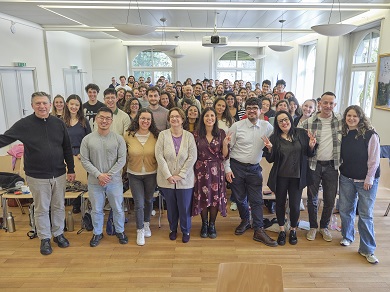
I knew I was putting myself under a lot of pressure and stress but never really listened to that inner voice. I crammed in courses, and then, what I feared most became a reality. I failed the same course twice, which meant I was expelled from the whole course.
My university had this strict policy, and if you fail the same course twice, you are no longer allowed to study that subject in Switzerland. Because of this, I’m not allowed to study psychology in Switzerland ever again.
The day I received the notice of expulsion, something inside me shattered with a loud noise. Sadness, bitterness, emptiness. It wasn’t that I hadn’t tried. I had tried my hardest. Tears rolled down my cheeks.
How did your fellow Soka Gakkai members support and encourage you during that time?
My parents encouraged me as much as they could and said that I should attend the Soka Gakkai meeting that was being held that day. I was just so sad and upset, but somewhere deep down, I knew the right decision was to go to the meeting and chant.
My biggest setback became my greatest treasure.
When I arrived, the members embraced me with warmth and positivity: “Just because one door has closed, it doesn’t mean others aren’t open! Jira, it’s okay!”
And when I chanted Nam-myoho-renge-kyo with the members that day, I realized something important, that victory in life is not about academic achievements, grades or following some predetermined “excellent” path that someone else has decided for you. It’s about whether you can make yourself happy or not! For some reason, I was filled with gratitude.
That day, what seemed like my biggest setback became my greatest treasure.
What did you determine? What did you pray for during that time?
Just to really find something that would make me happy. I prayed to understand my purpose and started over from scratch. Whenever I struggled, President Daisaku Ikeda’s words gave me strength, I felt like he was saying, “You can definitely overcome this.”
It was around that time that I remembered how interested I had been in fetal development in one of my psychology classes. That small spark of interest soon grew into a dream—to become a midwife. The following year, I began a midwifery course university.
Childbirth is not always easy or safe and sometimes babies are stillborn or have health issues, as a midwife, how do you encourage these mothers?
Every birth is different. In the delivery room, there is always “life,” but “death” lurks as well. I’ve never been present at a stillbirth, but I have been in situations where we’re not sure in which direction things would go. I always try to empower the mothers to have confidence in their own strength, in their own abilities. I believe that they have the means to get through these difficult situations. But it is always very hard to find the right words. I try to be very honest and not to say something just so that they feel good. When I see a mother is sad because the birth didn’t go as planned, my heart hurts with her.
I always try to empower the mothers to have confidence in their own strength, in their own abilities.
How do you cope?
As a fairly new midwife, my experience is still limited, and the responsibility is immense. If I said I wasn’t scared sometimes, I’d be lying. But I think that this fear makes me stronger. I believe that’s thanks to President Ikeda’s encouragement, which I read every day before I go to work. It helps me to see my problems within the larger context and also see all the obstacles I have.
When you hold a newborn baby, you feel the warmth of hope in your palm—from their very first heartbeat.
Anxiety, tension and joy . . . All a part of my day’s work, face-to-face with life.
Adapted from the September 27, 2024, issue of Seikyo Shimbun, Soka Gakkai, Japan.





